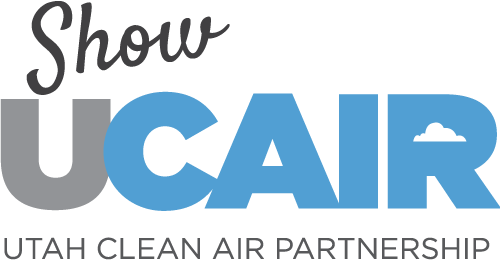UCAIR’s monthly partner meeting recap is here! This installment covers our November 2018 partners meeting, our first Friday meeting. After a discussion with the UCAIR Board and many of the partners, this meeting was moved from the second Thursday of the Month to the second Friday of the month. We look forward to working with everyone to ensure that these meetings are beneficial. The first presentation came from Dr. Craig Palsson with Utah State University of about their research regarding ride sharing’s effect on public transit. We then heard from Jay Baker an environmental scientist with the Division of Air Quality about the Utah Wood Stove Conversion program.
Uber’s Effect on Public Transit – Dr. Craig Palsson, Assistant Professor, Jon Huntsman School of Business, Utah State University
Since roughly 2015 transit ridership has been dropping. Uber X launched in about 2012, begging the question of whether ride hailing (Uber, Lyft, etc.) is to blame. Understanding if and to what extent Uber and other ride sharing services are impacting transit usage is important because traffic congestion, pollution and local government budget are just a few impacts we need to be aware of. Uber can be both a substitute and a complement to existing public transit services. When acting as a substitute, Uber or Lyft can reduce the cost of taxi-like services. Ride sharing can also act as a complement to transit, minimizing or eliminating the barriers many face in using it, such as a fixed-route or fixed-schedule service and the last-mile problem. The ability to utilize ride sharing services provides users “insurance” when taking transit that so you can get home in a hurry if the need arises. For some the combination of ride hailing and transit can be a better option than owning a car (or a second car). While policy makers and experts suspect Uber and Lyft are responsible for recent declines in transit ridership, it isn’t clear whether ride-sharing helps or hurts transit. Polling shows that 56% of weekly Uber users also take public transit weekly. Those who use ride-sharing, car-sharing, or bike-sharing self-report that they drive less (net 25%) and take transit more (net 15%). Additionally, Uber reports that a large share of trips start or end near a transit stop. In Boston, 40% of trips start or end near a MBTA subway or light rail station. In Portland, 25% of Uber trips start or end within 1/4 mile of transit station. In order to estimate the effect of ride-sharing on transit use, researchers compared the change in a transit agencies ridership over time between cities where Uber is, to cities where Uber is not. They used data from 132 months and 703 transit agencies across the country. The overall finding was a 6-7% increase in public transit use in cities where ride-sharing services are available.
You can read the entire paper here.
Utah Wood Stove Conversion/Change Out Incentive Program – Jay Baker, Environmental Scientist, Division of Air Quality
Earlier this year the Division of Air Quality was awarded a $9 million targeted airshed grant from the EPA. These funds will be used for an incentive program targeting wood burning appliances in non-attainment areas in Utah. Eligible counties include Utah, Salt Lake, Tooele Davis, Weber, Box Elder, and Cache. Program incentives are based upon income, low income households can receive up to $3,800 to switch to a gas burning appliances. If your household is not low income, you may be eligible for an incentive of up to $2,800. Smaller incentives are also available. For example, DAQ is offering a $250 bounty for residents who recycle uncertified wood burning appliances. The program launched in October and has been very popular, a total of 1,565 applications have been received so far.
For more information go to stoves.utah.gov
Partner Roundtable
Following the presentations, partners shared what projects and initiatives they are currently working on. These included:
Darla Gill, Merit Medical – Merit Medial is excited to have installed their first electric vehicle chargers for employee use.
Eric Benson, Holly Frontier – They are installing a new electric compressor that will replace two gas powered compressors at their plant.
Bryce Bird, DAQ, Division of Air Quality – SIP for PM2.5 has a public comment period now open for Revisions to Previously Proposed Section IX, Control Measures for Area and Point Sources, Part H, Emission Limits and Staff Reviewed BACT Analyses for the Salt Lake Nonattainment Area Point Sources. Additionally, they are currently installing solar panels at the Multi Agency State Office Building.
UCAIR Community Calendar: For more information about what is going on, check out the UCAIR Community Calendar. You can also add your events to it.

